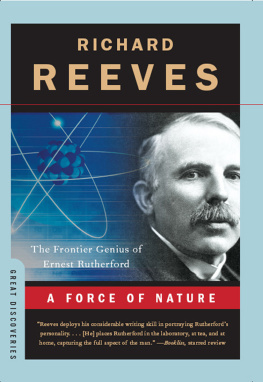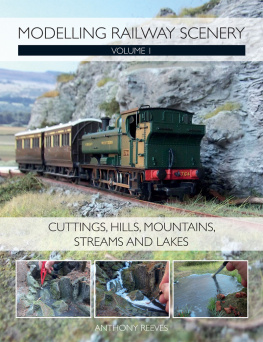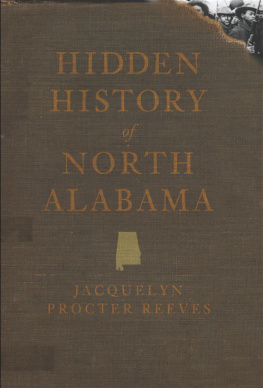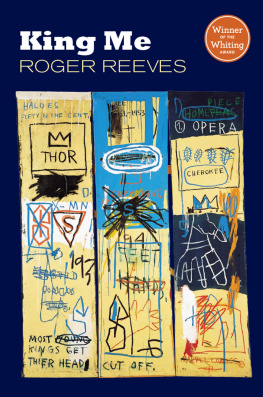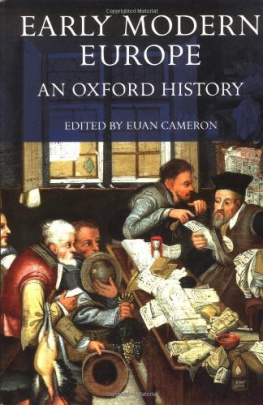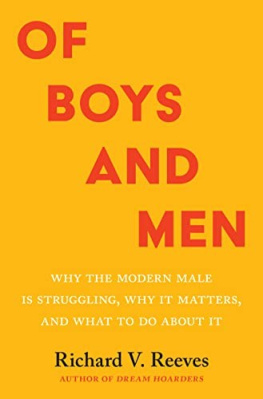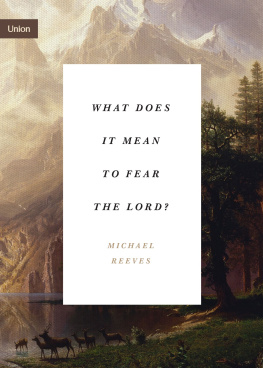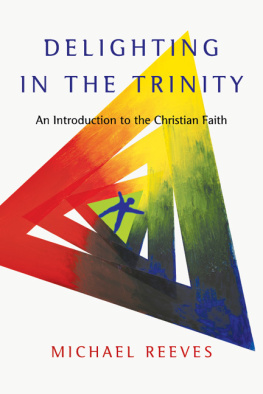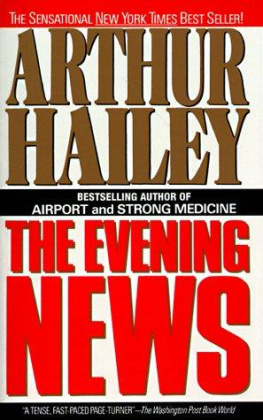Reeves - Evening news: optics, astronomy, and journalism in early modern Europe
Here you can read online Reeves - Evening news: optics, astronomy, and journalism in early modern Europe full text of the book (entire story) in english for free. Download pdf and epub, get meaning, cover and reviews about this ebook. City: Philadelphia, year: 2014, publisher: University of Pennsylvania Press, genre: Romance novel. Description of the work, (preface) as well as reviews are available. Best literature library LitArk.com created for fans of good reading and offers a wide selection of genres:
Romance novel
Science fiction
Adventure
Detective
Science
History
Home and family
Prose
Art
Politics
Computer
Non-fiction
Religion
Business
Children
Humor
Choose a favorite category and find really read worthwhile books. Enjoy immersion in the world of imagination, feel the emotions of the characters or learn something new for yourself, make an fascinating discovery.

- Book:Evening news: optics, astronomy, and journalism in early modern Europe
- Author:
- Publisher:University of Pennsylvania Press
- Genre:
- Year:2014
- City:Philadelphia
- Rating:3 / 5
- Favourites:Add to favourites
- Your mark:
- 60
- 1
- 2
- 3
- 4
- 5
Evening news: optics, astronomy, and journalism in early modern Europe: summary, description and annotation
We offer to read an annotation, description, summary or preface (depends on what the author of the book "Evening news: optics, astronomy, and journalism in early modern Europe" wrote himself). If you haven't found the necessary information about the book — write in the comments, we will try to find it.
Evening news: optics, astronomy, and journalism in early modern Europe — read online for free the complete book (whole text) full work
Below is the text of the book, divided by pages. System saving the place of the last page read, allows you to conveniently read the book "Evening news: optics, astronomy, and journalism in early modern Europe" online for free, without having to search again every time where you left off. Put a bookmark, and you can go to the page where you finished reading at any time.
Font size:
Interval:
Bookmark:
Evening News
MATERIAL TEXTS
Series Editors
Roger Chartier | Leah Price |
Joseph Farrell | Peter Stallybrass |
Anthony Grafton | Michael F. Suarez, S.J. |
A complete list of books in the series
is available from the publisher.
NEWS
Optics, Astronomy,
and Journalism
in Early Modern Europe
EILEEN REEVES

Copyright 2014 University of Pennsylvania Press
All rights reserved. Except for brief quotations used for
purposes of review or scholarly citation, none of this book
may be reproduced in any form by any means without
written permission from the publisher.
Published by
University of Pennsylvania Press
Philadelphia, Pennsylvania 19104-4112
www.upenn.edu/pennpress
Printed in the United States of America on acid-free paper
2 4 6 8 10 9 7 5 3 1
Library of Congress Cataloging-in-Publication Data
Reeves, Eileen Adair.
Evening news : optics, astronomy, and journalism in early
modern Europe / Eileen Reeves 1st ed.
p. cm. (Material texts)
ISBN 978-0-8122-4574-5 (hardcover : alk. paper)
Includes bibliographical references and index.
1. JournalismEuropeHistory17th century.
2. Newspaper publishingEffect of technological innovations onEuropeHistory17th century. 3. OpticsSocial aspectsEuropeHistory17th century.
4. AstronomySocial aspectsEuropeHistory17th century. 5. EuropeIntellectual life17th century. I. Title.
II. Series: Material texts.
PN5110.R44 2014
070.9'032 | 2013036502 |
Evening News concerns journalisms entanglement with astronomy and optics in the first decades of the seventeenth century. Part of this story, of course, involves the emergence of new technologies of communication and vision, but it is not merely the triumphal tale of the successful diffusion of scientific news in the popular and learned press. My concern is as much with what was distorted in those transmissions of information as it is with the more obvious successes of the medium. Thus while a series of readymade comparisons between the telescope and the newssheet or newsletter existsboth, for instance, had antecedents elsewhere but emerged as viable commercial commodities from the Dutch Republic, and both purported to offer miniaturized views of remote regions, but less of local valuethis work will concentrate above all on the productive shortcomings of those two conduits of information.
While Galileo Galilei figures as an important protagonist of this narrative, Evening News is not specifically devoted to the development of journalism in Tuscany, where he lived as the grand dukes mathematician and philosopher subsequent to his 1610 discovery of the Medici Stars or Jupiters satellites. Printed serial news came relatively late to Florence: sometime between 1636 and 1641, two different firms, seemingly rivals, received permission to produce and sell brief pamphlets reporting the latest events in and beyond Italy.modern discussions of news often involved gratuitous gestures to the astronomer, and that texts concerning the heavens, conversely, are occasionally informed by reportage of earthly events. This book investigates the logic of these allusions.
The apparent confluence of optics, astronomy, and journalism in the early seventeenth century was familiar before the actual emergence of either the Dutch telescope in September 1608 or the publication of the first periodical news in this same decade. To choose a celebrated example from antiquity, when in his Moralia Plutarch addressed that most common of human failings, curiosity, he figured the soul of the inquisitive man as an insalubrious camera obscura best remedied with the occasional shaft of light or fresh breeze, and he presented astronomical research as a great spectacle, and the only respectable form of newsmongering.
While Plutarch conveniently ignored the fact that the periodicity of the suns apparent movement or of the moons phases made the secrets that characterized them, once discovered, predictable and therefore wholly inadequate as substitutes for news, his advice would have enjoyed a renewed hearing in the early seventeenth century, when interest either in the very basic question of the suns stasis or movement or in the more refined one of the lunar light peaked, and when both issues were part of the debate over Copernicanism. Plutarchs pious observation that he who relied least on sensory information was often involved in the greatest use of the undistracted mind, and his approval of the spirit, if not the particulars, of an alarming tale about Democritusthat he deliberately destroyed his sight by fixing his eyes on a red-hot mirror... so that his eyes might not repeatedly summon his intellect outside and disturb itwould also have met with real understanding in the early days of sunspot study. There, the roles of the senses and of optical instruments came under great scrutiny, and those who indulged in direct observation of the unfamiliar solar phenomena suffered irreversible damage to their eyesight.
The predictive value of both almanacs and news collections, their cumulative ability to show long-term trends, is what the English statesman Dudley Carleton emphasized in 1616, perhaps somewhat self-consciously, when he reminded his friend John Chamberlain to save what others professed to use as fish wrap:
Since you can be content with the gazettas you shall have them by every messenger and you need not send them back, though I will desire you to keep them, in that I make (and so have done a long time) a collection of them as some do of almanacs to know the certainty of the weather, yet not with so great diligence as the duke of Urbino, who hath them in process of time from great antiquity.
But the single prognostications of the almanac, rather than the picture it presented over time, had already acquired a pronounced political and confessional character, a trait shared with early newswriting, and one at odds with the Roman Catholic Churchs emphasis on free will and its hostility to astrological determinism. Matteo Franzesi, a Florentine who served as a secretary in the Roman Curia in the late 1530s and 1540s, explicitly connected prognostication with the thirst for news: Let he who guesses / On the basis of conjectures and discussions / Astrologize, he advised his readers in a lighthearted poem on the emergent craze.
While Franzesis On News appeared in 1555 alongside other poems devoted to trivial objectscarrots, toothpicks, sausagethe situation of newsreaders and newswriters given to foretelling future events soon appeared more serious. A papal bull issued by Pius V in mid-March 1572, less than two weeks before his death, was directed against all those who write, dictate, keep, transmit, and fail to destroy libelous pamphlets and those things called newsletters and warned against the short-term predictions, not necessarily
The tangled relationship of astrological predictions about the near future with news of the recent past is nicely emblematized in the exchanges between Gloucester and his bastard son Edmund and his true heir Edgar in King Lear, first performed in 1606. When Edmund seeks to persuade his father of Edgars perfidious nature, he does so by showily concealing a fake private letter plotting the old mans death just as Gloucester makes his entry. Gloucesters assumption that such missives necessarily contain faithful accounts of current eventsEdmund, how now, what news?is typical of the early modern thirst for the sort of information conveyed in letters from unnamed gentlemen of quality, and it predisposes him to believe that Edgar is both the writer and his would-be killer. that will come true by the tragedys end, and the accurate and timely news of Gloucesters rage.
Next pageFont size:
Interval:
Bookmark:
Similar books «Evening news: optics, astronomy, and journalism in early modern Europe»
Look at similar books to Evening news: optics, astronomy, and journalism in early modern Europe. We have selected literature similar in name and meaning in the hope of providing readers with more options to find new, interesting, not yet read works.
Discussion, reviews of the book Evening news: optics, astronomy, and journalism in early modern Europe and just readers' own opinions. Leave your comments, write what you think about the work, its meaning or the main characters. Specify what exactly you liked and what you didn't like, and why you think so.


